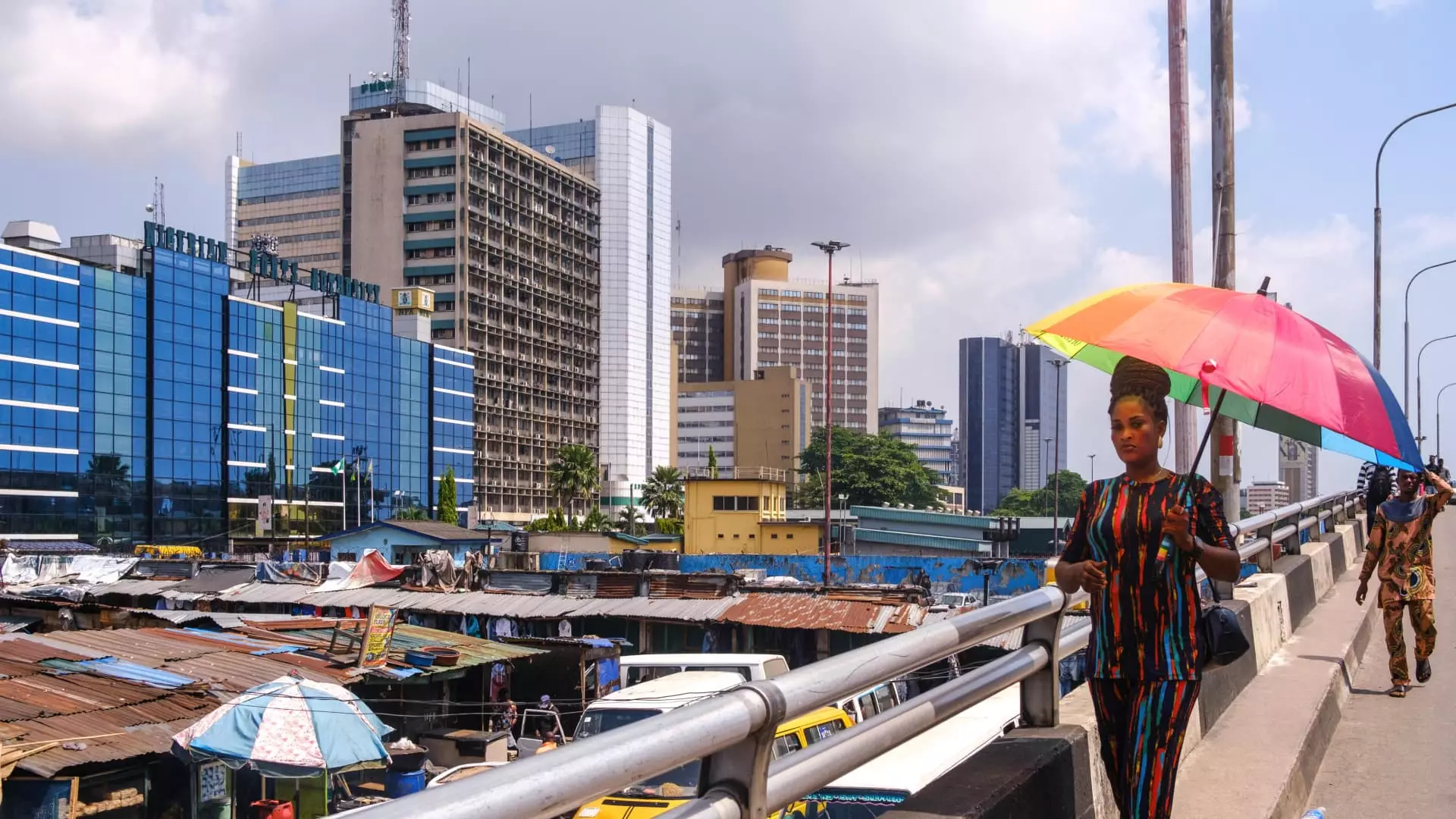The Central Bank of Nigeria recently announced a 200 basis point increase in its key interest rate in an effort to stabilize the country’s economy after facing challenges such as a historic currency crisis and soaring inflation. This decision comes as part of a series of incremental hikes, highlighting the importance of combating runaway inflation in the nation’s larger economy.
Governor Olayemi Cardoso emphasized the need for continued tightening to address the growing concerns surrounding inflation. Despite some policymakers expressing worries about the impact on economic growth, the decision to raise the interest rates signifies a commitment to prioritizing the fight against inflation, which reached a peak of 31.7% year-on-year in February.
With the inflation rate projected to continue rising over the coming months, analysts anticipate further interest rate hikes in the near future. Capital Economics forecasts additional 100 basis point increases at upcoming meetings in May and July to address the ongoing crisis. However, once the hiking cycle is complete, policymakers are likely to maintain a hold on interest rates for the remainder of the year.
The depreciation of Nigeria’s naira currency by approximately 70% against the U.S. dollar has contributed to the economic challenges facing the country. The recent announcement that a $7 billion backlog of imports has been cleared provided some relief, leading to a slight recovery in the naira’s value. Despite these improvements, the central bank’s efforts to stabilize the currency reflect the ongoing struggles in the foreign exchange market.
Minutes from the central bank’s February meeting revealed diverging opinions among committee members regarding the drivers of inflation and naira weakness. While the MPC collectively agreed on a 400 basis point rate hike, there were varying views on the magnitude of the increase. Governor Cardoso’s advocacy for a significant move underscores the importance of restoring the central bank’s credibility and attracting foreign investment.
The Central Bank of Nigeria’s decision to raise interest rates signals a proactive approach to addressing the country’s economic challenges, particularly in light of soaring inflation and currency depreciation. As policymakers continue to navigate the complexities of the current financial landscape, the emphasis on tightening monetary policy reflects a concerted effort to stabilize the economy and restore investor confidence.

